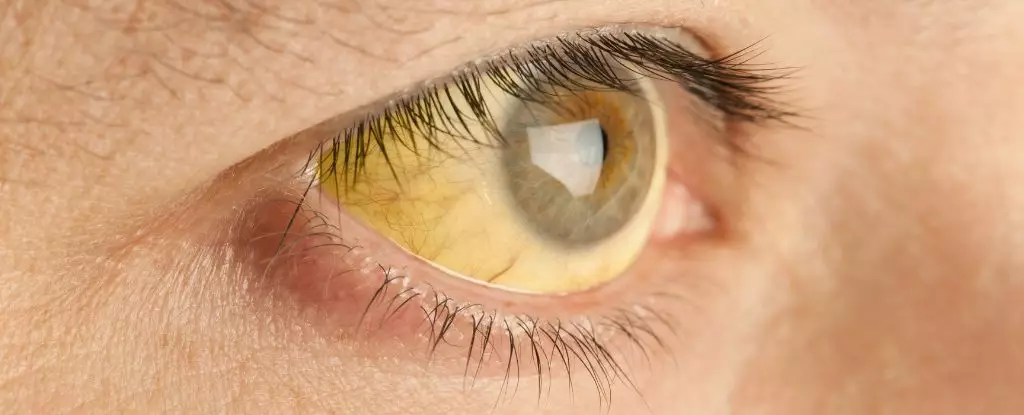For decades, bilirubin has been relegated to the role of a mere waste product, primarily associated with the liver’s misfortunes, like jaundice. This yellow-tinted compound has been synonymous with dysfunction, an outcast in the realm of bodily health. However, new research could force us to reconsider this narrative, suggesting that jaundice, far from being a mere byproduct of liver distress, might possess surprising protective qualities against malaria—a disease that continues to plague millions globally. Our understanding of health needs an overhaul, ranging from the cellular level up to the societal implications of such discoveries.
A Malaria Epidemic Still Haunts Us
Every year, malaria infects over 260 million people living in tropical and subtropical regions, leading to approximately 600,000 fatalities. The reality is grim: the Anopheles mosquito serves as a relentless vector, injecting not just saliva but also the catastrophic Plasmodium falciparum protozoan into human blood. This parasite, once inside, targets red blood cells, breaking them down and releasing toxic levels of iron that exacerbate the individual’s plight. It is in this setting that bilirubin becomes an unexpected ally. The new study reveals that rather than causing harm, increased bilirubin levels may provide a unique buffer against the life-threatening consequences of malaria. This shift in perspective invites a deeper examination of how we respond to and combat diseases that have historically evaded a complete cure.
The Protective Paradox
Critical findings indicate that asymptomatic malaria patients exhibit significantly higher levels of unconjugated bilirubin compared to those displaying acute symptoms. This discrepancy ignites a crucial dialogue: could our bodies synthesize compounds in defense against debilitating diseases, essentially turning a physiological malady into a healing mechanism? The evidence from the recent study involving human blood samples suggests that bilirubin acts as an even more complex savior than previously understood. Elevated bilirubin levels are associated with survival against the parasitic assault, highlighting that what we once considered pathological may hold the keys to resilience.
In an interesting twist to this narrative, experiments conducted on genetically modified mice confirmed that those lacking bilirubin succumbed rapidly to malaria, while their counterparts thrived. The implication is striking: an evolutionary mechanism may have favored those capable of producing bilirubin as a natural means of warding off a lethal disease. This revelation should serve as a wake-up call, compelling healthcare practitioners and researchers alike to consider alternative protective measures grounded in our innate physiology.
The Dilemma of Trade-offs
However, with every silver lining comes a cloud. The occurrence of neonatal jaundice—a condition tied to bilirubin accumulation and its potential neurotoxic effects—poses a formidable challenge. It seems that evolution has offered a double-edged sword: while bilirubin may confer significant protective benefits against malaria, it also harbors risks that can lead to dire consequences for newborns. This paradox highlights an essential dilemma within medical research and public health: How do we leverage these biological insights without risking unseen adverse outcomes?
Navigating this complexity requires thoughtful consideration of context and ethics in medical interventions. As we advance in understanding bilirubin’s role in malaria resistance, we must also exercise caution in translating these findings into clinical practices.
Looking Ahead: Harnessing Nature’s Defenses
The future of malaria treatment could hinge on harnessing this newly discovered mechanism—transforming what was viewed as mere waste into a valuable asset. The potential applications are exhilarating: doctors may someday utilize bilirubin not just as a marker of liver health but as a proactive treatment strategy in the face of infection.
Thus, the emerging narratives surrounding bilirubin compel us to foster an innovative mindset within biomedical research. By recognizing the multifaceted roles that various compounds play in our bodies, we can begin to construct a more nuanced understanding of health and disease. The insights gained from this study may serve as a pathway, leading us to uncharted territories of therapeutic potential and transforming the very fabric of our approach to tackling infectious diseases.
The implications are vast, and the stakes are high; it’s time we reconsider our views on biological waste and recognize the latent roles of seemingly innocuous compounds. The simplicity of categorizing bilirubin as a liability does a disservice to the potential it holds as a guardian in our ever-uncertain battle against diseases like malaria. More research is undoubtedly warranted, yet the narrative is clear: nature often finds a way to empower even in the face of adversity.

